Filter by
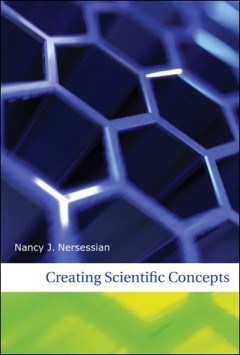
Creating Scientific Concepts
An account that analyzes the dynamic reasoning processes implicated in a fundamental problem of creativity in science: how does genuine novelty emerge from existing representations?How do novel scientific concepts arise? In Creating Scientific Concepts, Nancy Nersessian seeks to answer this central but virtually unasked question in the problem of conceptual change. She argues that the popular i…
- Edition
- -
- ISBN/ISSN
- 9780262280549
- Collation
- 1 online resource (xiv, 251 pages) :illustrations
- Series Title
- -
- Call Number
- -
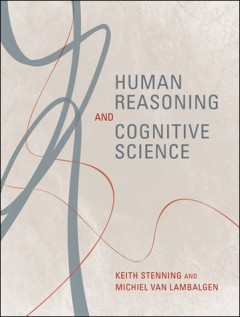
Human Reasoning and Cognitive Science
"A Bradford book.""In Human Reasoning and Cognitive Science, Keith Stenning and Michiel van Lambalgen - a cognitive scientist and a logician - argue for the indispensability of modern mathematical logic to the study of human reasoning. Logic and cognition were once closely connected, they write, but were "divorced" in the past century; the psychology of deduction went from being central to the …
- Edition
- -
- ISBN/ISSN
- 9780262284295
- Collation
- 1 online resource (xii, 407 pages) :illustrations
- Series Title
- -
- Call Number
- -

Do the Right Thing: Studies in Limited Rationality
The authors argue that a new theoretical foundation for artificial intelligence can be constructed in which rationality is a property of "programs" within a finite architecture, and their behavior over time in the task environment, rather than a property of individual decisions.Like Mooki, the hero of Spike Lee's film "Do the Right Thing," artificially intelligent systems have a hard time knowi…
- Edition
- -
- ISBN/ISSN
- 9780262282772
- Collation
- 1 online resource (xx, 200 pages) :illustrations.
- Series Title
- -
- Call Number
- -
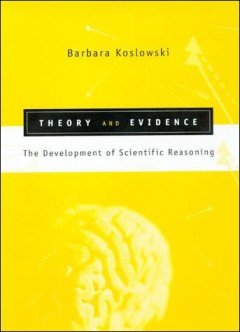
Theory and Evidence: The Development of Scientific Reasoning
A Bradford book."In Theory and Evidence Barbara Koslowski, long acknowledged for her empirical work in the field of cognitive-developmental research, brings into sharp focus the ways in which the standard literature both distorts and under-estimates the reasoning abilities of ordinary people. She provides the basis of a new research program for a more complete characterization of scientific rea…
- Edition
- -
- ISBN/ISSN
- 9780262277471
- Collation
- 1 online resource (xii, 298 pages) :illustrations.
- Series Title
- -
- Call Number
- -
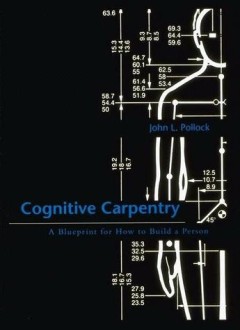
Cognitive Carpentry: A Blueprint for How to Build a Person
A sequel to Pollock's How to Build a Person, this volume builds upon that theoretical groundwork for the implementation of rationality through artificial intelligence. Pollock argues that progress in AI has stalled because of its creators' reliance upon unformulated intuitions about rationality. Instead, he bases the OSCAR architecture upon an explicit philosophical theory of rationality, encom…
- Edition
- -
- ISBN/ISSN
- 9780262281751
- Collation
- 1 online resource (xiii, 377 pages) :illustrations
- Series Title
- -
- Call Number
- -
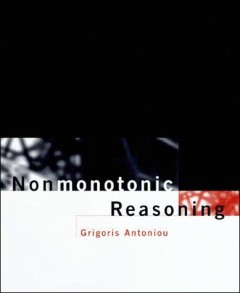
Nonmonotonic reasoning
Nonmonotonic reasoning provides formal methods that enable intelligent systems to operate adequately when faced with incomplete or changing information. In particular, it provides rigorous mechanisms for taking back conclusions that, in the presence of new information, turn out to be wrong and for deriving new, alternative conclusions instead. Nonmonotonic reasoning methods provide rigor simila…
- Edition
- -
- ISBN/ISSN
- 0585037035
- Collation
- 1 online resource (xii, 285 pages) :illustrations.
- Series Title
- -
- Call Number
- -
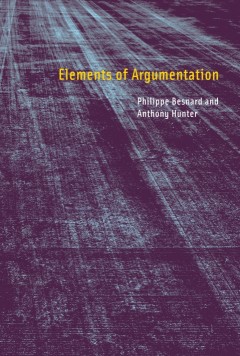
Elements of argumentation
Here the authors introduce techniques for formalizing deductive argumentation in artificial intelligence, emphasising emerging formalizations for practical argumentation. They discuss how arguments can be constructed, how key intrinsic and extrinsic factors can be identified, and how these analyses can be harnessed in the real world.OCLC-licensed vendor bibliographic record.
- Edition
- -
- ISBN/ISSN
- 9780262268400
- Collation
- 1 online resource (298 pages)
- Series Title
- -
- Call Number
- -
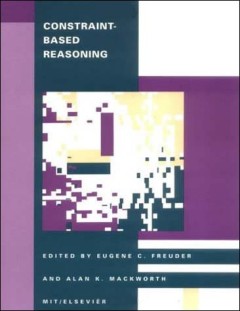
Constraint-Based Reasoning
"A Bradford book."Reprinted from Artificial intelligence, volume 58, numbers 1-3, 1992.Constraint-based reasoning is an important area of automated reasoning in artificial intelligence, with many applications. These include configuration and design problems, planning and scheduling, temporal and spatial reasoning, defeasible and causal reasoning, machine vision and language understanding, quali…
- Edition
- -
- ISBN/ISSN
- 9780262288446
- Collation
- 1 online resource (403 pages) :illustrations
- Series Title
- -
- Call Number
- -
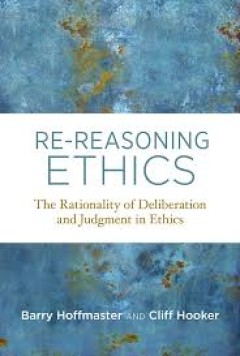
Re-reasoning ethics :the rationality of deliberation and judgment in ethics
How developing a more expansive, non-formal conception of reason produces richer ethical understandings of human situations, explored and illustrated with many real examples.OCLC-licensed vendor bibliographic record.
- Edition
- -
- ISBN/ISSN
- 9780262345637
- Collation
- 1 online resource (xvi, 296 pages).
- Series Title
- -
- Call Number
- -
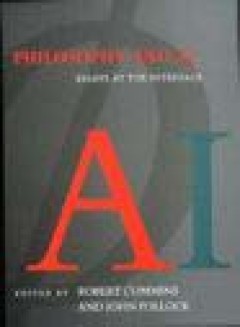
Philosophy and AI :essays at the interface
"A Bradford book."OCLC-licensed vendor bibliographic record.
- Edition
- -
- ISBN/ISSN
- 9780262315951
- Collation
- 1 online resource (xi, 304 pages) :illustrations
- Series Title
- -
- Call Number
- -
 Computer Science, Information & General Works
Computer Science, Information & General Works  Philosophy & Psychology
Philosophy & Psychology  Religion
Religion  Social Sciences
Social Sciences  Language
Language  Pure Science
Pure Science  Applied Sciences
Applied Sciences  Art & Recreation
Art & Recreation  Literature
Literature  History & Geography
History & Geography